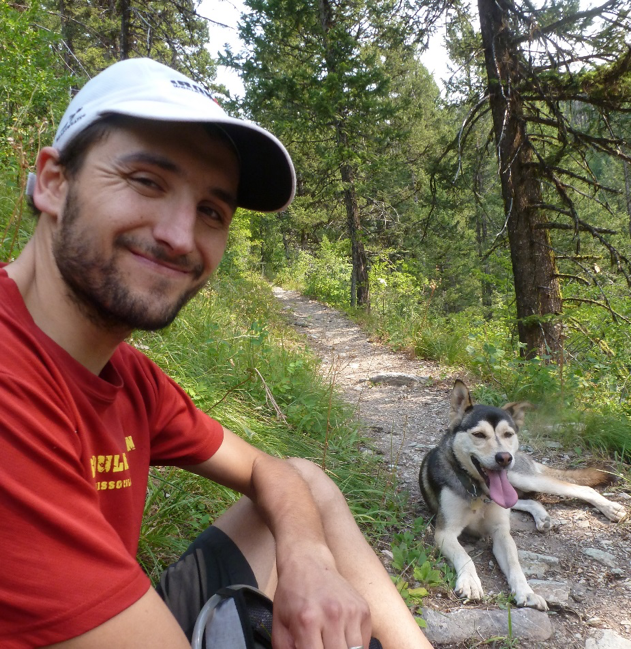
Where are you from? What brought you to Missoula or kept you here?
I grew up in Colville, Washington, which is a small town north of Spokane. I came to Missoula to attend the University in 2004. I chose Missoula because of the active outdoor community and its reputation as a progressive, forward-thinking bunch of people. I graduated from UM with a BFA in Fine Arts with an emphasis in photography, so naturally I found a job I love at a local bike shop. Here we are almost a decade later, and I have no plans to go anywhere. Plus, if I leave, I hear that I have to do 24 hours of Sentinel laps, which sounds hard, so I’m staying.
When did you start running and why?
To be honest I am not quite sure. The house I grew up in was bordered on all sides by a wildlife refuge, and as a kid, running around in the woods was just what we did. The first race I remember running was on the beach in Florida, while visiting my grandparents. It was probably half a mile long, barefoot. I was probably 8 or 9 years old. My little sister beat me, and it took me a while to let go of the resulting grudge.
Roads, Trails, or both?
It’s complicated. I generally prefer trails, but there is something really great about running, and especially racing, on the road. I am a numbers guy, and road running has a certain calculated precision that is appealing. Then again, the unpredictable nature of trail running also has its own appeal. Overall, trails win, mostly because the views are better.
You recently completed the Rut Trifecta (VK, 28k, 50k), and race A LOT throughout the year. How do you recover so quickly? What is your recovery advice to runners with races close together?
The short answer is that I don’t actually recover effectively. My best advice to runners who have races close together is to temper your expectations. You won’t be able to race at your full potential, whatever level that is, unless you spread your races out. I do enjoy having a good performance, but more than that, the atmosphere of racing is what really draws me back to all these events. That said, the human body is often capable of a lot more than the inhabitant of that body realizes. Until you do something like the Rut Trifecta, it sounds insane, but when it comes time for that 50k, you just start running, and everything works itself out.
There are also some important recovery techniques that help along the way. I think for me, the most important is making a habit of eating well. Not just right after a race or workout, but all the time. More than anything, a healthy variety of fresh fruits and vegetables helps keep your immune response system working properly, and that goes a long way towards effective recovery. Also, sleeping well is extremely important. I’m pretty sure the most expensive item in my house is the mattress I sleep on.
What is your go to tracking method for your runs? What data is most important to you?
Strava is great! I love that there is essentially a social network for athletes. It’s important, though, to keep your competitive nature in check. Strava segments can ruin the effectiveness of a workout pretty easily. Also, it’s important to keep in mind that they aren’t always perfectly accurate, so stressing about your pace or time on a specific segment is wasted energy. But it does provide a wonderful opportunity to talk trash to your training buddies.
I actually pay a lot less attention to any data than I used to. I like to keep track of my weekly mileage, and how many miles I have on each pair of shoes (one of my favorite Strava features), but other than that, these days I just go out and run. I have tried using heart rate as a metric in the past to determine proper interval effort, but I have never been quite dedicated enough to fully apply it.
Do you run throughout the winter, or do you have another go to training method when it’s cold?
Yes, and yes. I usually run 2 or 3 days a week, and the rest of the time I ski. I try to get a good mix of skate and classic cross-country skiing, as well as some backcountry, Thursday night randonee races at Snowbowl, and some on-area skiing. When I was doing more triathlon racing, winter was really my time to work on swimming, and I would get in the pool 5-6 times a week, but that dropped off substantially last winter.
If you could only pick one Montana race to run in 2018, what would it be?
The Rut 28k. No question. So glad I don’t have to just choose one though.
 runwildmissoula.org >>
runwildmissoula.org >>

